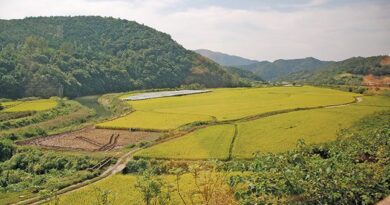ZDA puts investment opportunities on spotlight at AFSIC
Zambia Development Agency (ZDA) anticipates linking project promoters in the country to a wide range of investors through presenting local investment opportunities in the AFSIC Deal Book, inviting investors to pursue the prospects.
AFSIC is the largest annual Africa investment summit taking place outside of Africa, slated for 7th to the 9th of October in London where 300+ speakers are anticipated and over 1200+ delegates.
The ZDA mandated by the laws to foster economic growth and development by promoting trade, business development and investment in the country through an efficient, effective and coordinated private sector led economic development strategy, promote economic diversification through the growth of exports and promote, facilitate, protect and monitor domestic and foreign direct investment;
In addition, promote investment through joint ventures and partnerships between local and foreign investors, facilitate the development of industrial infrastructure and commercial services, promote research on matters related to industrial development, facilitate the protection of infant industries and provide for matters connected with, and incidental to, the foregoing.
The Agency maintains and regularly updates a roster of investment opportunities that are available for acquisition.
“As sponsors of AFSIC this year, we are proud to present these opportunities in the AFSIC Deal Book, which we invite all investors to pursue.
“We are happy to provide further information, link all prospective investors with the project promoters and provide a wide range of investor support as you enter the Zambian market,” said ZDA, ahead of the year’s AFSIC.
According to ZDA, the country’s mining sector, especially copper and cobalt mining, continues to grow due to increased global demand for the minerals, driven by the green energy transition and electric vehicle production.
The Agency further highlighted that investments upwards of USD 4.5 billion into mining in the country were unveiled in January 2024, attributable to the concerted sector and business environment reforms, positioning Zambia as the most reliable mining investment partner in Africa.
Further, the government has an ambitious target of reaching 3 million MT production of copper by 2031.
“This poses a huge growth opportunity coupled by huge demand for critical minerals, for example copper, cobalt, nickel, lithium and manganese among others.”
On another frointer ZDA highlighted that the renewable energy sector is rapidly expanding as the country invests in solar, hydropower, and other renewable energy projects to meet increasing energy demands and reduce dependence on fossil fuels.
“Domestic demand for electricity is projected to rise rapidly, mainly driven by the expansion of mining and agriculture. By 2030, electricity generation will need to increase by 44 percent, equating to an additional 13.8 TWH annually to drive economic growth. This translates to additional market potential of $960M per annum.”
As agriculture remains a cornerstone of the economy, with growth driven by initiatives to improve productivity, diversify crops, and increase exports, ZDA indicated that the country has aside one million hectares of land in all the 10 provinces in strategic farm blocks open to both local and foreign investors to commence farming activities either rain fed or highly mechanized ones.
Construction and Infrastructure is also seeing significant investments in infrastructure projects, including roads, bridges, housing, and commercial buildings, are driving growth in this sector.
“The country has a huge backlog in excess of 2 million housing units, in addition to the vast civil infrastructure that needs to be built and upgraded including, health, educational, logistics and others.”
Meanwhile the tourism sector is recovering and growing post-pandemic, with efforts to promote Zambia’s natural attractions, including Victoria Falls, national parks, and wildlife, while the manufacturing sector is experiencing growth, particularly in agro-processing, food and beverages, textiles, and construction materials, driven by efforts to diversify the economy.
On a positive note, the information and communication technology (ICT) sector is growing rapidly due to increasing digitalization, expanding internet penetration, and rising mobile phone usage.




